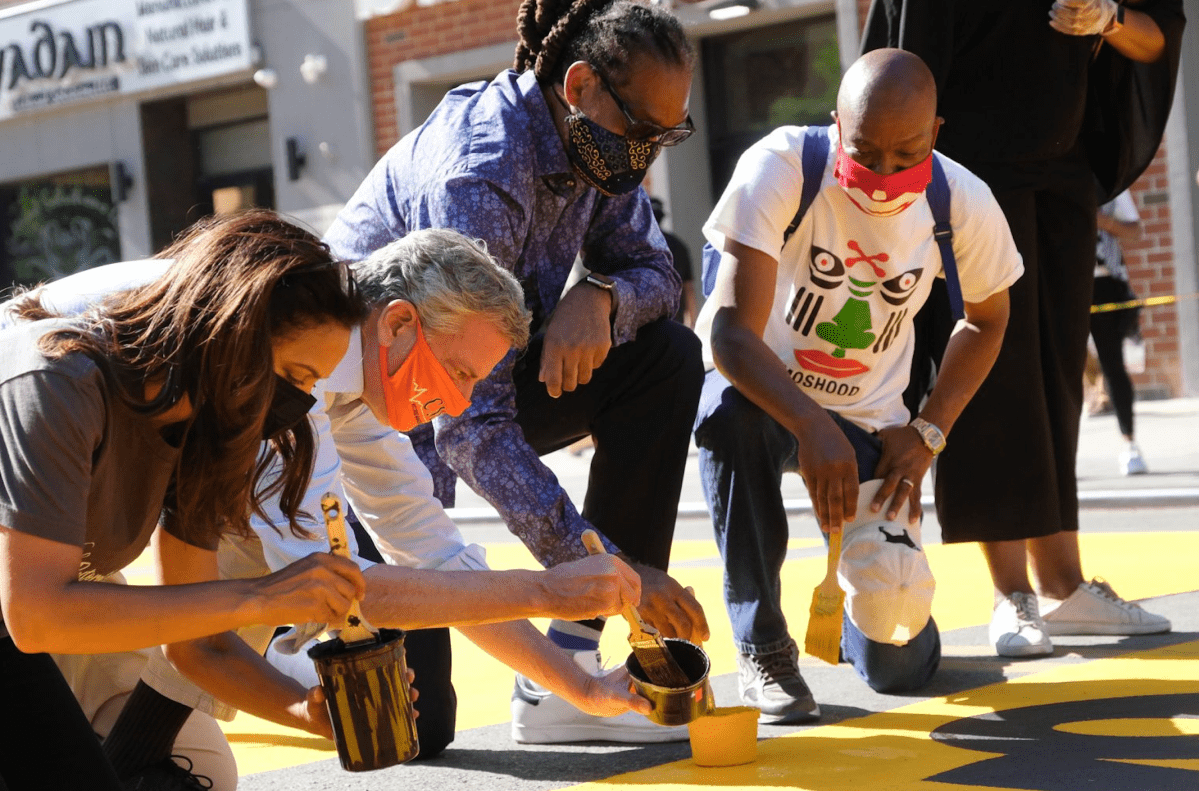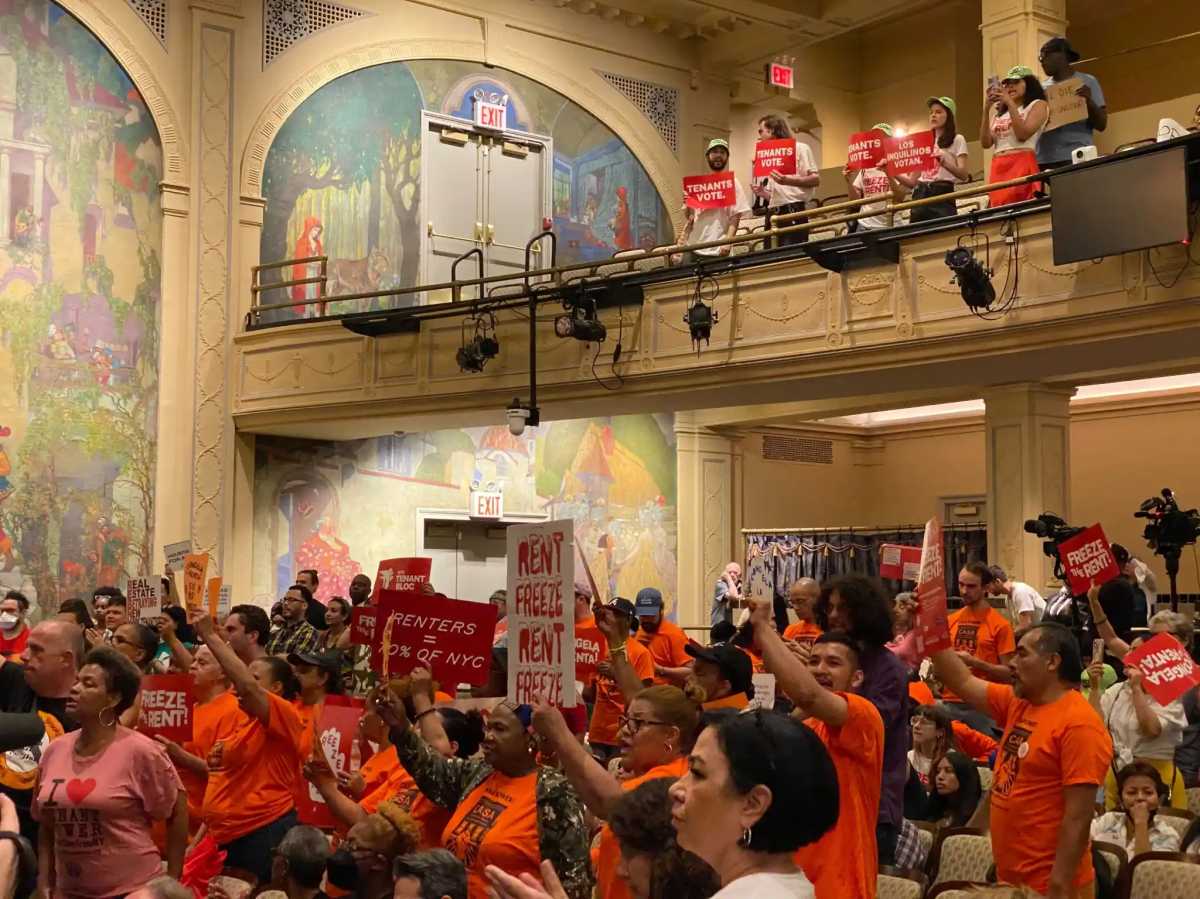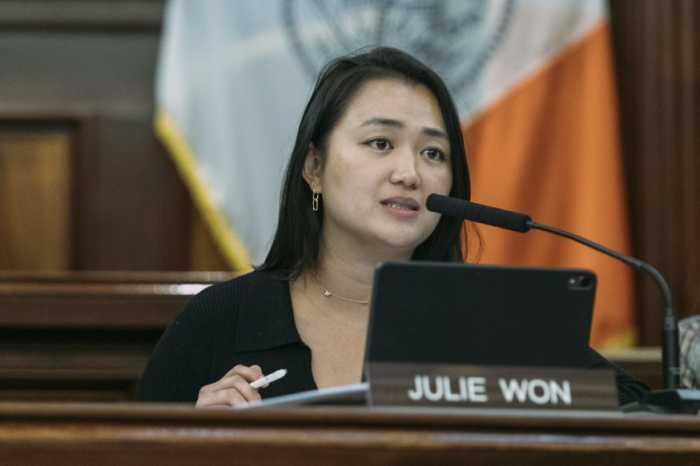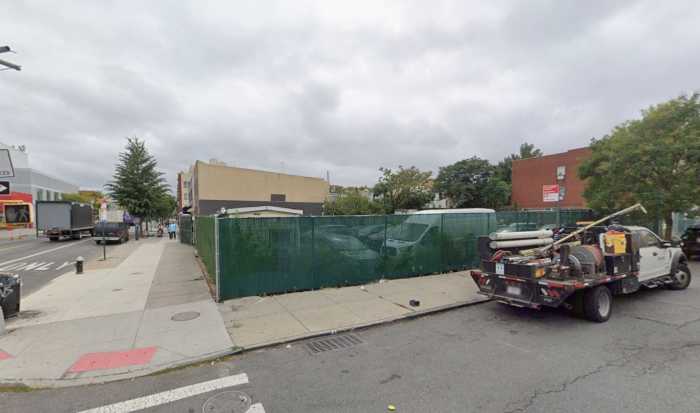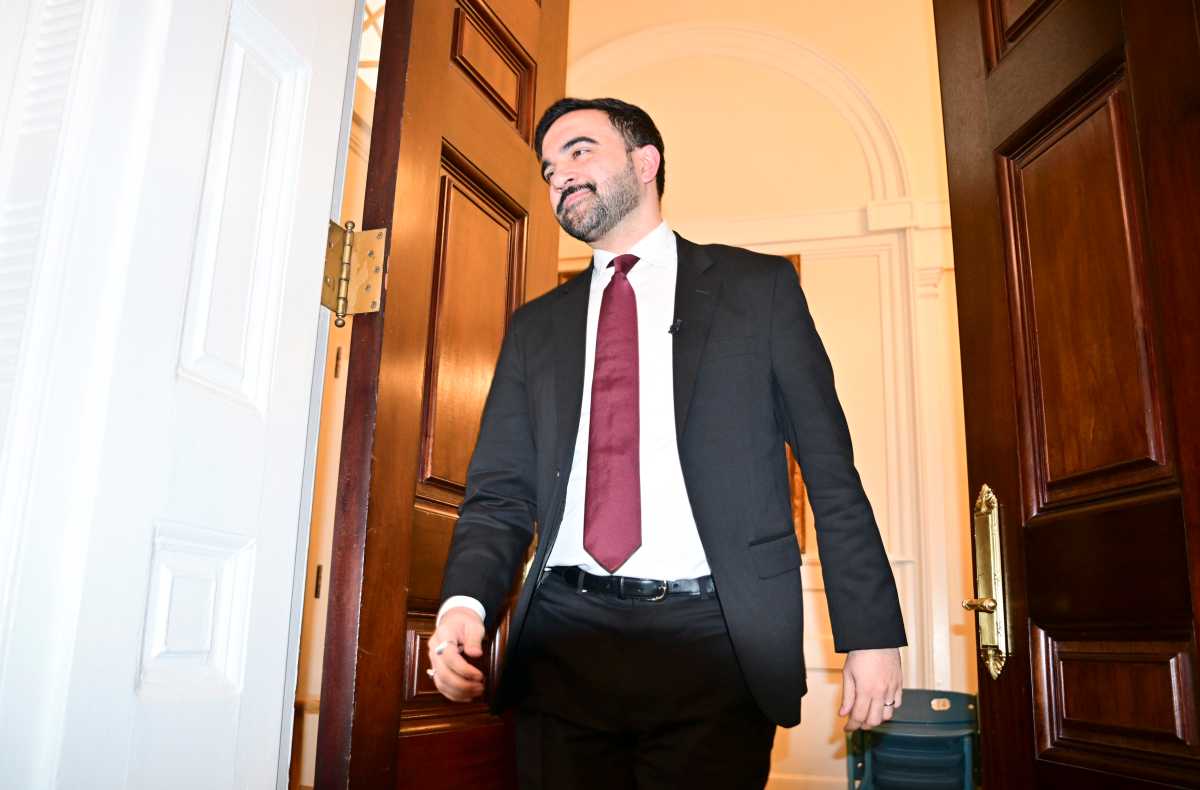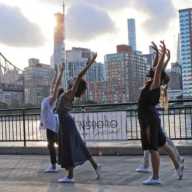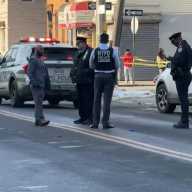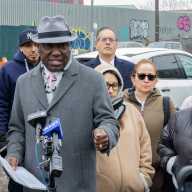On a day that he called “a celebration of a liberation that never really came,” Mayor Bill de Blasio declared Juneteenth as an official city holiday — and announced an effort to examine and root out decades of institutional racism in New York City.
Friday marked the observance of Juneteenth, which commemorates the emancipation of the last slaves in Texas in 1865. The holiday, de Blasio noted, has taken on greater importance this year in the wake of the George Floyd police-involved murder in Minneapolis back on May 25, and the ongoing movement against police brutality and racial injustice that followed.
Though the slaves were freed more than 150 years ago, the mayor acknowledged, racism and discrimination continue to haunt New York City and the United States to this day.
“Our city also has a very painful history. Slavery was alive and well in New York City for a very long time,” de Blasio said. “Redlining and discrimination in every form existed in liberal, progressive New York City for generations. In too many ways, discrimination is alive and well today. Structural racism still exists, and we have to change that.”
Change in New York City, he said, would partially come through education and recognition. De Blasio signed an executive order declaring Juneteenth an official New York City holiday, including for public schools. The order takes effect on June 19, 2021 — a Saturday, though there will likely be an observance of Juneteenth for public schools the Friday before.
To further that effort, the city has formed the Racial Justice and Reconciliation Commission. First lady Chirlane McCray, co-chair of the Mayor’s Task Force on Racial Inclusion and Equity, laid out the commission’s objectives during Friday’s press conference at City Hall.
McCray said the panel provides “a platform for New Yorkers to voice their experiences” of racism and discrimination while also promoting learning and other measures “to tear down the barriers toward true equality” in employment, housing, criminal justice, the environment, education, health and other sectors of the city.
It’s the first commission of its kind in any American city or state, she added.
“The commission will work to explode the false narratives we have lived with for far too long, and make plain the truth that even in 2020, to be a person of color is to live in a parallel existence with white New Yorkers,” McCray said.
“Reconciliation is not an alternative to justice, but it is necessary to build trust,” she added. “We can correct the record; we can clean our wounds; we can begin anew when the truth is told.”
The commission would consider public memorials, statues and sites named for individuals entangled with racism. That includes Thomas Jefferson, author of the Declaration of Independence and the third president of the United States, who also owned slaves. The City Council’s considering removing his statue from City Hall.
McCray also mentioned, as another example, Archibald Gracie, the prominent New Yorker for whom Gracie Mansion, the mayor’s official residence is named. The first lady said she learned on Thursday that the mansion itself was built by slaves and indentured servants in 1799 — a fact, she claimed, was not recorded in any book about the mansion that she read — and that Gracie himself owned held three slaves in bondage there.
De Blasio said the commission might also consider the impact of Robert Moses, the master builder whose projects shaped New York during the 20th century, many of which were developed on what the mayor called “racist precepts.”
“The fact that we live in a physical reality that was explicitly created to divide and segregate is an example of how much we have to examine and undo,” de Blasio added. “This will be difficult, painstaking work that has to happen — acknowledging the truth and recognizing the structures that must be changed.”
But the goal of the commission is not about rewriting or erasing history, added Deputy Mayor Phil Thompson.
“Part of what we have to do is not just tear down statues and erect new ones,” he said, noting that many of our founding fathers — including George Washington, commander in chief of the Continental Army during the American Revolution and our nation’s first president — had imperfect pasts.
“I actually like that in Washington, D.C. — there’s a monument to Lincoln and to Washington and to Martin Luther King Jr. because it shows that George Washington isn’t perfect, Lincoln wasn’t perfect, Martin Luther King wasn’t perfect and we are not perfect either,” Thompson added. “We continue to get better, we learn from our mistakes and our weaknesses, and that’s how we get stronger and more unified as a nation. And that’s how we want to approach it.”
To further embrace the call for greater equality, de Blasio also announced Friday the locations of new Black Lives Matter street murals across the city that will be installed over the next few weeks. The BLM murals will be painted on Centre Street in Manhattan; Richmond Terrace on Staten Island; Joralemon Street in Downtown Brooklyn; 153rd Street in Queens; and Morris Avenue in the Bronx.
This story originally appeared on amny.com.

